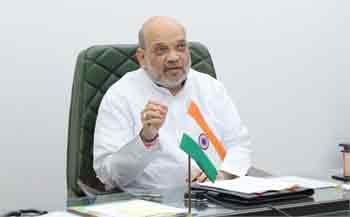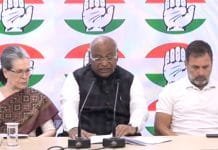Online Gaming Bill 2025: Lok Sabha Passes Landmark Ban on Online Money Games
The Lok Sabha on Wednesday passed the Online Gaming Promotion and Regulation Bill, 2025, marking a decisive move to ban all online games played for money in India. This legislation is designed to combat the rising concerns of addiction, money laundering, and financial fraud linked to online betting and gambling platforms. The bill also places strict restrictions on advertisements, banking transactions, and financial institutions associated with online money games.
What the Online Gaming Bill 2025 Enforces
The newly passed bill creates a comprehensive framework to prohibit, regulate, and penalize online money-based gaming activities across India. Its provisions include:
Complete ban on online money games such as poker, rummy, fantasy sports, and online lotteries.
Prohibition on advertisements promoting such games on television, digital platforms, or print media.
Restrictions on banks and financial institutions, barring them from processing or transferring funds related to online gambling.
Stringent punishments for violators, including up to three years of imprisonment and fines up to ₹1 crore.
Establishment of a legal boundary between entertainment gaming (like chess, sudoku, and e-sports) and money-driven gambling games.
This bill seeks to address not just the economic risks but also the social impact of gambling addiction, which has led to mounting debts, destroyed families, and even suicides.
Government’s Rationale Behind the Ban
Union Electronics and Information Technology Minister Ashwini Vaishnav spearheaded the discussion in the Lok Sabha. During the debate, he emphasized:
Prioritizing society over revenue: “Our Prime Minister has always chosen society when it comes to protecting citizens, regardless of revenue considerations,” Vaishnav declared.
Differentiating segments of online gaming:
E-sports – Encouraged for promoting strategy, teamwork, and cultural exchange.
Casual social games – Like solitaire and chess, deemed educational and harmless.
Online money games – Labeled as a serious societal concern causing financial ruin.
Opaque algorithms: The minister highlighted that many gaming platforms run on non-transparent systems, making it impossible to know who users are playing against, opening doors for fraud.
Public welfare focus: The minister pointed out the devastating consequences, noting cases of suicides linked to gambling losses.
Despite opposition protests, the bill was passed by voice vote, underscoring the government’s firm stance on tackling the menace of online betting.
Scope of the Ban: What Becomes Illegal?
The bill draws a clear line between safe entertainment and dangerous gambling practices. Under its provisions, the following activities will now be illegal once enacted into law:
Online Fantasy Sports Leagues involving money deposits.
Card Games like poker, rummy, and blackjack when played for money.
Online Betting Platforms connected to cricket, football, horse racing, or any other sport.
Digital Lotteries promising cash rewards.
Satta and Gambling Portals operating under disguised gaming apps.
All such activities will be considered criminal offenses, and those found guilty of offering or facilitating them will face harsh penalties.
Punishments and Penalties Under the Bill
The Online Gaming Promotion and Regulation Bill, 2025 sets severe consequences for violators to ensure effective enforcement:
Imprisonment: Offenders can face up to three years in prison.
Fines: Monetary penalties may extend to ₹1 crore depending on the scale of involvement.
Corporate liability: Companies promoting or hosting banned games may face asset seizures and operational bans.
Financial institutions caught processing gaming-related payments will also face legal action.
By targeting not only players but also facilitators, the bill seeks to dismantle the ecosystem of online money gaming.
Impact on Online Gaming Industry in India
The passage of this bill marks a turning point for the online gaming sector in India. While e-sports and casual online games remain unaffected, the money-driven segment faces a complete shutdown.
Online Fantasy Sports: Platforms such as Dream11 and MPL, heavily reliant on fantasy leagues, will be forced to suspend operations involving cash prizes.
Poker and Rummy Apps: Long controversial, these apps will now become explicitly illegal.
Advertising Agencies: Any promotion of money-based games across media channels will be strictly banned.
Banks and UPI platforms: Payment processors like Paytm, Google Pay, and banks will block transactions linked to gambling apps.
This move could potentially wipe out a multi-billion-dollar industry, but the government has made it clear that citizen welfare outweighs commercial interests.
Why the Ban Was Necessary: Rising Social Concerns
The government’s urgency in introducing this bill stems from alarming real-world consequences:
Addiction Epidemic: Countless families have reported financial ruin due to compulsive gaming habits.
Debt Traps: Players often borrowed money or liquidated assets to continue gambling.
Fraudulent Schemes: Many apps were linked to money laundering operations, masking illegal fund transfers.
Mental Health Crisis: Instances of depression and suicides among youth addicted to online betting have been steadily increasing.
By banning online money games, the government aims to shield vulnerable individuals, particularly the middle class and younger population, from exploitation.
Public and Political Reactions
The bill’s passage triggered mixed reactions across the country:
Supporters praised the move as long overdue, citing it as a safeguard against predatory gambling platforms.
Critics, especially from the opposition, argued that the bill was pushed through hastily without adequate consultation with stakeholders.
Parents and educators welcomed the decision, emphasizing that it will protect youth from destructive gaming habits.
Industry stakeholders, including online gaming companies, expressed concerns over job losses and investment declines.
Regardless of divided opinions, the bill reflects a clear political will to prioritize social welfare over economic benefits.
How the Online Gaming Bill 2025 Will Be Enforced
The bill includes provisions to ensure effective implementation and monitoring:
Central Oversight Authority: A nodal government body will oversee compliance and crackdowns on violators.
Collaboration with ISPs: Internet Service Providers will be required to block access to banned gaming platforms.
Banking Surveillance: Financial institutions must actively report and block suspicious transactions linked to online gambling.
Strict Ad Monitoring: Media watchdogs will monitor television, digital, and print ads to prevent indirect promotions.
Public Awareness Campaigns: The government plans to run educational initiatives warning against the dangers of online gambling.
These mechanisms will ensure that the ban is not just symbolic but actively enforced.
Looking Ahead: The Future of Online Gaming in India
The passage of the Online Gaming Bill 2025 sets the stage for a new era of digital entertainment in India:
E-sports and skill-based games are expected to flourish, with potential government support.
Investments may shift from money-driven gambling to educational and cultural gaming platforms.
Regulatory clarity could attract responsible global gaming companies to India’s market, provided they adhere to the ban on cash-based gaming.
Youth engagement may shift toward healthier, skill-driven online activities.
While the industry undergoes disruption, the long-term goal is to foster a safer digital environment for Indian citizens.
Conclusion
The Online Gaming Bill 2025 stands as one of the most significant legislative moves to regulate India’s digital ecosystem. By banning online money games, gambling, and betting platforms, the government has prioritized public welfare over profit, sending a strong message against addictive and fraudulent practices.
Once implemented, this bill will reshape the online gaming industry, safeguard millions from exploitation, and set a global precedent for responsible digital governance.













